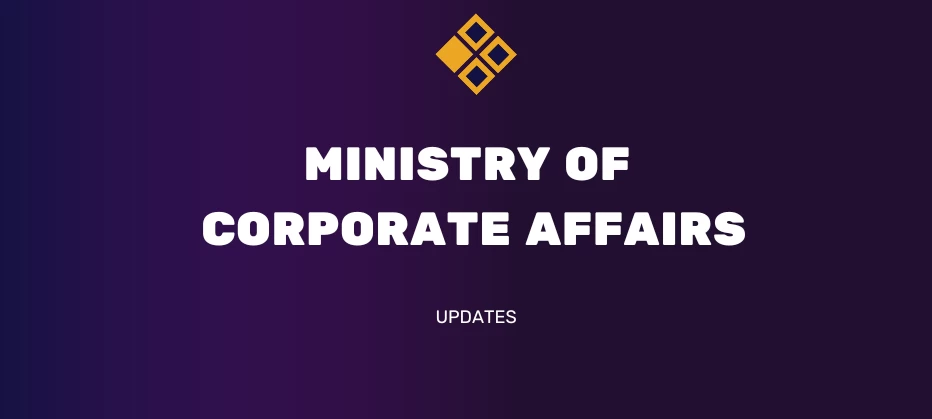
Companies (Compromises, Arrangements and Amalgamations) Amendment Rules, 2023
June 4, 2023 by Team Instabizfilings
Introduction
In a recent development, the Central Government has introduced amendments to the Companies (Compromises, Arrangements and Amalgamations) Rules, 2016. These changes aim to streamline the process of compromises, arrangements, and amalgamations in companies, ensuring they are conducted in the public interest and for the benefit of creditors. Let's delve into the key updates brought about by the Companies (Compromises, Arrangements and Amalgamations) Amendment Rules, 2023.
Short Title and Commencement
The amended rules, known as the Companies (Compromises, Arrangements and Amalgamations) Amendment Rules, 2023, will come into effect from the 15th day of June, 2023.
Amendments to the Companies (Compromises, Arrangements and Amalgamations) Rules, 2016
Two significant amendments have been made to sub-rules (5) and (6) of rule 25 in the Companies (Compromises, Arrangements and Amalgamations) Rules, 2016. Let's explore these changes in detail:
Confirmation Order for Scheme of Merger or Amalgamation
Previously, if no objection or suggestion was received within a certain timeframe, the Central Government had the authority to issue a confirmation order for the scheme of merger or amalgamation. Under the new amendment, if no objection or suggestion is received within thirty days of receiving the scheme from the Registrar of Companies and Official Liquidator, the Central Government may issue a confirmation order in form CAA 12 within fifteen days after the expiration of the thirty-day period if it is in the interest of public or the creditors. Moreover, if the Central Government fails to issue the confirmation order within sixty days of receiving the scheme, it will be deemed that there are no objections, and a confirmation order will be issued accordingly.
Objections or Suggestions Received
Previously, objections or suggestions received within a specific timeframe were considered. The new amendment provides a clearer framework for handling objections or suggestions. If objections or suggestions are received within thirty days of receiving the scheme from the Registrar of Companies or Official Liquidator or both, the following scenarios may occur:
If the objections or suggestions from the Registrar of Companies or Official Liquidator are deemed invalid and the Central Government believes the scheme is in the public interest or in the interest of creditors, it may issue a confirmation order within thirty days after the initial thirty-day period in Form CAA 12.
If the Central Government, based on the objections or other reasons, believes that the scheme is not in the public interest or in the interest of creditors, it may file an application before the Tribunal within sixty days of receiving the scheme. The application will state the objections or opinions and request the Tribunal to consider the scheme under section 232 of the Act.
If the Central Government fails to issue a confirmation order or file any application within sixty days of receiving the scheme, it will be deemed that there are no objections, and a confirmation order will be issued accordingly.
Conclusion
The Companies (Compromises, Arrangements and Amalgamations) Amendment Rules, 2023, have brought about significant changes to the process of compromises, arrangements, and amalgamations in companies. These amendments aim to ensure that such processes are conducted in the public interest and for the benefit of creditors. By providing clarity on timelines and actions to be taken by the Central Government regarding objections or suggestions received, the amended rules strive to create a more efficient and transparent framework for companies involved in mergers, amalgamations, and other restructuring activities. These changes will undoubtedly contribute to the growth and stability of the corporate landscape in India.
If you have any further queries or require additional guidance, our team of experts at Instabizfilings is here to assist you. We understand that navigating the legalities of company law can be complex, but you don't have to face it alone. Feel free to reach out to us, and our knowledgeable professionals will be more than happy to clarify any doubts you may have and provide you with accurate guidance. We are committed to helping you ensure compliance and make informed decisions for your business.
Disclaimer
The information provided in this blog is purely for general informational purposes only. While every effort has been made to ensure the accuracy, reliability and completeness of the content presented, we make no representations or warranties of any kind, express or implied, for the same.
We expressly disclaim any and all liability for any loss, damage or injury arising from or in connection with the use of or reliance on this information. This includes, but is not limited to, any direct, indirect, incidental, consequential or punitive damage.
Further, we reserve the right to make changes to the content at any time without prior notice. For specific advice tailored to your situation, we request you to get in touch with us.

Need more details? We can help! Talk to our experts now!
Start Your Business Registration – Talk to Our Experts Now!

Still Confused?
Talk to experts? Fill in the information and we will reach out in 24 Working Hours.

